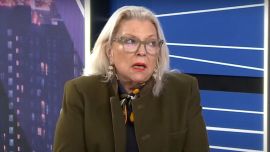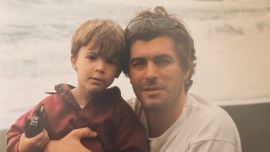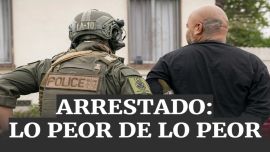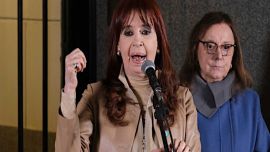An independent group appointed by the Inter-American Commission on Human Rights (IACHR) on Tuesday accused Bolivia's security forces of carrying out torture, "massacres" and "summary executions" during social unrest around the disputed 2019 elections.
The 471-page report was presented by the Interdisciplinary Group of Independent Experts (GIEI), which was set up by the IACHR, an autonomous organ within the Organisation of American States (OAS).
"The Police and Armed Forces, separately and in joint operations, used excessive and disproportionate force, and did not adequately protect citizens from acts of violence," it reads. "For their part, individuals promoted and carried out acts of violence and attacks on people, and public and private property."
Bolivia descended into chaos after Evo Morales stood for and won an unconstitutional fourth term as president in elections two years ago, a vote which the opposition claimed had been made possible thanks to fraud. The OAS later said it had found “irregularities” when probing the vote, though some of those claims were later challenged.
Amid growing tensions, clashes broke out between rival supporters and opponents of Morales' Movement for Socialism (MAS) party, and between security forces and protesters, leaving at least 37 people dead. The worst of the violence came after the indigenous leader resigned and fled the country, after the police and military withdrew support, leaving his supporters clashing with the military and police.
GIEI member Patricia Tappatá, one of five authors of the new report, said Tuesday that "at least 37 people lost their lives in various parts of the country and hundreds received serious injuries, both physical and psychological."
The investigation centered on events from September 1 to December 31, 2019. Morales resigned and fled the country on November 10 with conservative Jeanine Áñez taking over as interim president two days later.
Two of the main events investigated were clashes in Sacaba, in the centre of the country near Cochabamba, on November 15, and at the Senkata gas plant in El Alto, on the outskirts of La Paz, four days later.
In each incident 11 people died, with the investigatory group branding both as "massacres."
In Sacaba, an area where coca farmers are dominant, the investigatory group was aided by Argentine forensics experts, whose work allowed the investigators to "infer" that some of the dead were the victims of "summary executions."
The GIEI also said it had "found no evidence” to back up claims that “protesters had used firearms or threatened the lives of other protesters, of the police or of the Armed Forces present.”
“There were no reports of serious injuries to any member of the security forces,” it added.
The group said the social unrest "escalated and erupted into confrontations and violent aggressions" following "antagonistic speeches from recognised leaders."
At the presentation of the report in La Paz on Tuesday, President Luis Arce – like Morales a member of MAS – announced that the victims would be compensated.
He blamed Áñez's interim government for "serious human rights violations, massacres and extrajudicial massacres" and said his government would take legal proceedings against them.
Opposition response
Responding to the GIEI report on Tuesday, Áñez asked for a fair trial. “We demand respect for the Constitution, guarantees with due process and equal conditions," she declared in a post on Twitter.
Áñez and several of her interim ministers have been in pre-trial detention since March. The new government has sought to have them prosecuted for their part in what they allege was a clear "coup" seeking to oust Morales from power.
The ex-interim leader, in turn, has accused the Bolivian government of leading a campaign of "political persecution" against her and her allies.
Luis Fernando Camacho, an influential opposition leader from the eastern region of Santa Cruz, called on both Áñez and Morales to face charges.
Declaring that the report “is clear,” he said it revealed that “deaths and human rights violations began during the government of Evo Morales and concluded" with Áñez’s.
Former president Carlos Mesa (2003-2005) called for judicial reform, saying that Bolivia’s existing system failed “to guarantee justice and due process.”
The centrist leader has been accused by the Arce administration of being one of those responsible for the alleged “coup” that saw Morales removed from power, along with the Catholic Church, the European Union, the OAS and the governments of Argentina’s former president Mauricio Macri and Ecuadorean leader Lenín Moreno.
The IACHR in a statement, said that the GIEI report represented “work carried out by independent experts with technical suitability, integrity, and impartiality."
– TIMES/AFP


























Comments